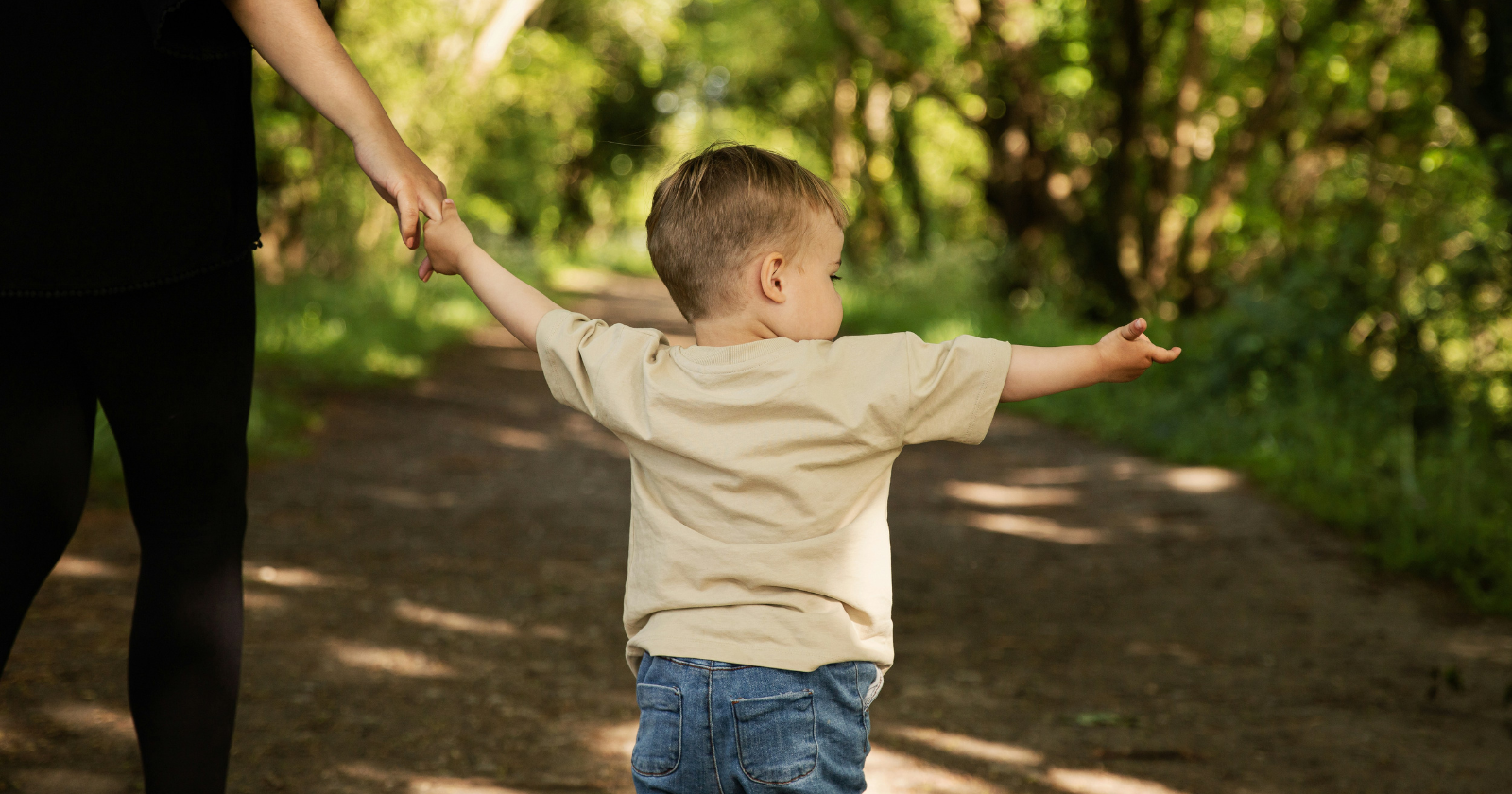Let’s be honest—parenting advice changes faster than the laundry piles up. What used to be considered “good parenting” can now feel a little…off.
Over the past few years, I’ve had to unlearn quite a few beliefs myself. Not because my parents did anything wrong—they did what they knew—but because I started noticing how some old-school ideas simply don’t fit the kind of connection I want with my kids.
If you’ve ever felt guilty for second-guessing the “that’s how I was raised” approach, this one’s for you.
Let’s unpack eight outdated beliefs that may be quietly hurting more than helping.
1. “Good kids don’t talk back”
I used to think a well-behaved child meant one who stayed quiet when corrected.
But when my daughter, Greta, started pushing back on bedtime routines (“But I wasn’t tired yet!”), I realized—she wasn’t being disrespectful. She was communicating.
Kids who “talk back” are often just trying to make sense of boundaries. They’re learning to use their voices, test fairness, and express opinions.
If we silence them every time, they might stop voicing what they need—not just at home, but later in friendships and workplaces too.
Now, when Greta questions something, I try to listen first. Sometimes her logic surprises me. Sometimes she’s just stalling bedtime.
Either way, I’d rather raise a child who knows her voice matters than one who stays quiet out of fear.
2. “Spanking teaches respect”
I know this one hits a nerve. For years, spanking was seen as a quick fix—a “lesson” in discipline. But the research is clear: it doesn’t teach responsibility, it teaches fear.
Related Stories from The Artful Parent
- 8 signs you’re raising an emotionally secure child even when it doesn’t feel like you know what you’re doing
- 9 things creative kids do that look like misbehavior but are actually signs their mind is working overtime
- The 8 messiest childhood activities are actually the ones building your child’s brain in ways screens never will
As noted by HealthyChildren.org, “The use of spanking as a disciplinary tool increases aggression in young children in the long run and is ineffective in teaching a child responsibility and self-control.”
When emotions run high, hitting only models how to react with anger. What actually builds respect is consistency—clear rules, calm correction, and follow-through.
In our home, we use a “pause and repair” system. If tempers flare (mine included), we take five minutes apart. Then we reconnect and talk about what went wrong.
The focus isn’t punishment—it’s learning.
3. “Praise should always sound positive”
Here’s a trap I didn’t see coming: overpraising.
When Greta started reading early, I used to gush—“You’re so smart!” It felt encouraging, but over time, I noticed she avoided harder books. She didn’t want to risk “not being smart anymore.”
- Psychology says the people who seem impossible to manipulate all share one trait. They learned early that love shouldn’t require you to abandon your own perception of reality. - Global English Editing
- Quote of the day by James Baldwin: “Not everything that is faced can be changed, but nothing can be changed until it is faced” - Global English Editing
- The career advice I ignored at 25 cost me three years and a failed startup — here’s what I’d tell anyone stuck in their thirties right now - Global English Editing
That’s when I learned about the research that says praising kids for being smart can actually hurt motivation more than praising them for effort.
So now I say things like, “You really focused on that tricky word,” or “I love how you kept trying.” It shifts the spotlight from talent to persistence.
And honestly? It works on adults too. I’ve started talking to myself that way when I’m juggling deadlines and diapers.
4. “Boys don’t cry” (and girls shouldn’t be ‘too sensitive’)
Emotions have long been divided into “acceptable” and “over the top.” But suppressing them only creates confusion.
My son, Emil, once cried because his tower fell over for the fifth time. My old instinct was to say, “You’re okay!” But really, he wasn’t. He was frustrated.
As child psychiatrist Daniel J. Siegel explains in The Whole-Brain Child, helping kids name their emotions—what he calls “name it to tame it”—teaches them to regulate those feelings.
So now, instead of rushing to distract or downplay, I say, “That was disappointing, huh? You worked hard on that.”
The shift is subtle but powerful. Emotions lose their intensity when they’re understood, not shamed.
5. “Parents should always know best”
This belief comes from love—but it can easily slide into control. When we decide everything—from what they wear to who they play with—we rob kids of small opportunities to trust themselves.
I learned this the hard way when Greta wanted to wear a tutu and rain boots to a family brunch. My instinct was to say no—it didn’t “match.” But I bit my tongue. She twirled all morning, proud of her choice, and no one cared but me.
That moment taught me something simple: letting kids make small choices helps them handle big ones later.
Sometimes “knowing best” means stepping back.
6. “Talking about feelings makes kids weak”
When you’ve been raised on stoicism, vulnerability can feel like overexposure. But if I’ve learned anything from motherhood—and from Rudá Iandê’s Laughing in the Face of Chaos—it’s that emotions are not enemies.
One line from the book stopped me in my tracks:
“Our emotions are not barriers, but profound gateways to the soul—portals to the vast, uncharted landscapes of our inner being.”
That line changed the way I approach emotional meltdowns. When one of the kids breaks down, I try not to shut the emotion down; I try to guide it.
Sometimes that means a walk, sometimes a cuddle, sometimes just silence until they’re ready.
And honestly, the more comfortable I’ve become with my own emotions—especially guilt, frustration, and overwhelm—the better I’ve gotten at helping my kids name theirs.
7. “Tough love builds character”
Here’s a tricky one.
Tough love is often just love…without empathy.
Many of us were raised to “push through” rather than pause, to “shake it off” instead of check in. But kids need connection before correction. They can’t learn from us if they feel unseen or unsafe.
I’ve seen this most with Emil. When he feels scolded, he shuts down. But when I kneel down, make eye contact, and say, “I can see you’re upset, let’s figure this out together,” he resets almost instantly.
Empathy doesn’t make kids soft—it makes them secure. Secure kids handle frustration better because they trust that mistakes don’t cost them love.
And that trust? That’s the foundation for resilience.
8. “Parents must be perfect role models”
This one might be the hardest myth to break—especially for those of us juggling work, parenting, and the endless to-do lists that keep families afloat.
There’s this pressure to be calm, patient, and endlessly wise. But perfection isn’t what kids need. Presence is.
If I lose my cool, I apologize. If I’m exhausted, I say it. It’s messy, but it’s real—and it teaches my kids that being human is allowed.
I’ve realized over time that showing imperfection isn’t weakness—it’s leadership. It reminds our kids that emotions, mistakes, and hard days are all part of real life.
And that’s how they learn to navigate their own.
Closing thoughts
Parenting today asks more of us than ever before. Not more perfection—just more awareness.
Many of these outdated beliefs come from good intentions. Our parents wanted to raise strong, capable kids.
But strength doesn’t come from silence or obedience—it grows from self-trust, compassion, and emotional literacy.
And those are things we can start nurturing any day, even in the smallest ways: pausing before reacting, listening instead of fixing, apologizing when we need to.
I’ve learned that the real “modern parenting” isn’t about trends or hacks—it’s about staying curious. Questioning what we inherited, keeping what serves us, and releasing what doesn’t.
That’s what I try to model for Greta and Emil every day: that love evolves.
And that being a good parent isn’t about getting it all right—it’s about growing right alongside them.



